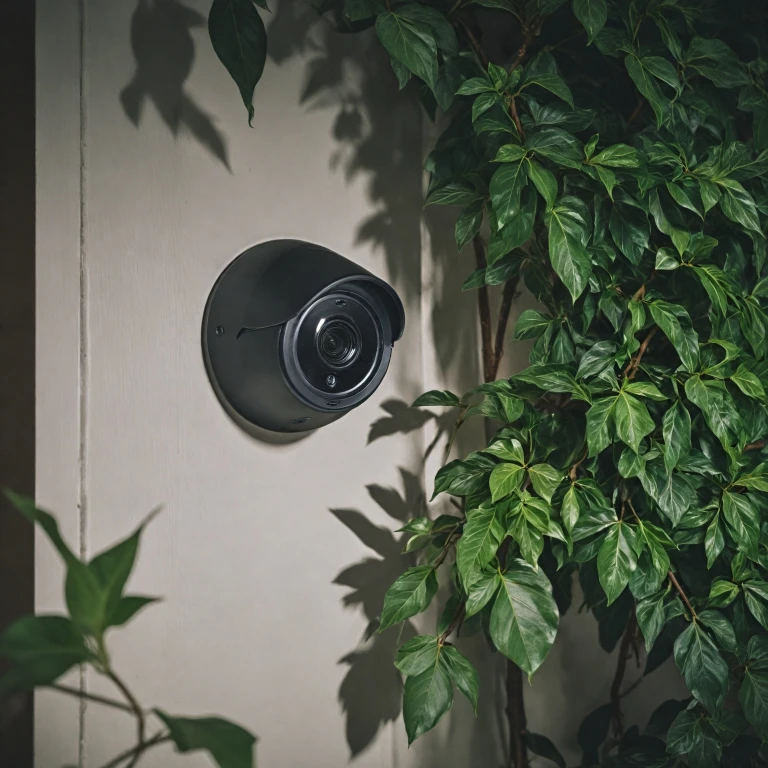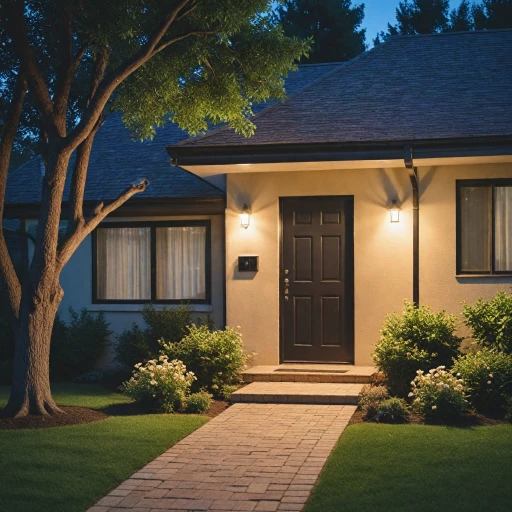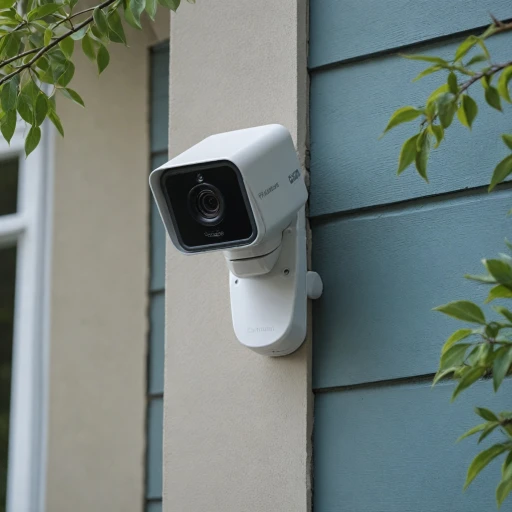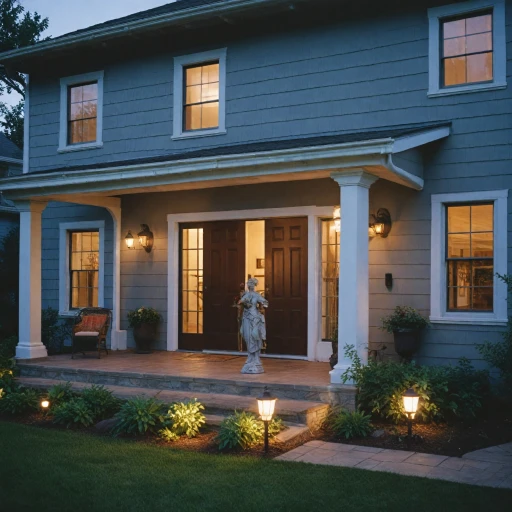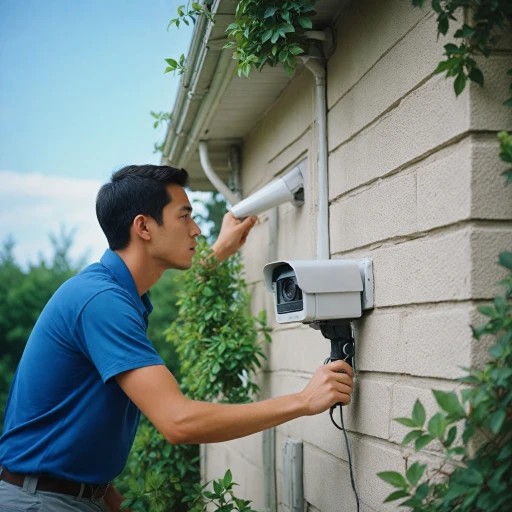
Understanding Cameras Without WiFi
Exploring the Basics of Non-WiFi Security Cameras
In an era where connectivity seems to be the cornerstone of technology, the idea of security cameras that operate without WiFi might seem a bit unconventional. However, these cameras are gaining traction for their unique advantages and specific use cases. Unlike traditional WiFi security cameras, non-WiFi cameras do not rely on an internet connection to function. Instead, they operate independently, often using local storage solutions such as SD cards or external hard drives to save footage.
These cameras work by capturing video and storing it directly onto a local storage device, which can be accessed later for review. This setup can be particularly beneficial in areas where internet access is unreliable or where privacy concerns dictate a more isolated system. For instance, rural areas or locations with limited cellular coverage might find these cameras especially useful.
Moreover, non-WiFi security cameras can be part of a broader security system that includes other wireless cameras or devices that do not require a constant internet connection. This can provide a robust security solution without the need for a WiFi connection, ensuring that your security measures are not compromised by internet outages or connectivity issues.
For those interested in exploring more about how these systems can be integrated into your home security setup, you might find this resource on doorbell cameras that operate without WiFi helpful. It provides insights into similar technologies that work without the need for constant internet access.
Benefits of Non-WiFi Security Cameras
Advantages of Relying on Wired Connections
Investing in security cameras that operate without relying on WiFi provides greater reliability for areas with weak or no internet connection. One significant benefit is the constant video transmission through a direct wired connection, reducing potential disconnections.Uninterrupted Security Even Without Internet Access
Security cameras that don't depend on an internet connection can provide peace of mind by ensuring continuous monitoring. Without having to rely on a WiFi network, these cameras can work effectively in remote locations where internet access is limited.Enhanced Privacy with Local Data Storage Options
Cameras that operate autonomously often feature local storage, such as a microSD card or local server. This reduces privacy risks associated with cloud storage hacks and offers direct access to footage without requiring internet transmission. Additionally, cellular data usage can serve as an alternative means of accessing footage via mobile devices, maintaining privacy.Cost Efficiency and Reduced Dependency
By opting for a security camera without the need for a WiFi connection, homeowners can potentially save on the costs associated with high-speed internet packages or avoid investing in range extenders. This works well in reducing dependency on a wireless security system, especially in areas where a stable WiFi internet connection is unattainable. Considering these benefits when comparing to other systems, you may also explore enhancing your home security with additional features such as battery-powered outdoor motion sensor lights to complement your non-WiFi camera setup effectively.Limitations and Challenges
Potential Drawbacks of Cameras Without Internet Connectivity
While opting for security cameras that don't require a WiFi connection has its upsides, it’s essential to be aware of the limitations and challenges that come with this choice. Understanding these can help make a more informed decision about the suitability of non-WiFi cameras for your specific security needs.
- Limited Remote Access: Without an internet connection, accessing your security footage remotely can be challenging. You won't have the convenience of viewing live video feeds on your phone without internet access. This might not be ideal for those who require real-time monitoring from afar.
- Storage Constraints: Non-WiFi security cameras typically rely on local storage solutions like a microSD card or an external hard drive. While this ensures data privacy, you may face constraints on storage capacity, necessitating frequent data management or investment in larger storage solutions.
- Absence of Advanced Features: Some of the more sophisticated features found in WiFi-connected systems, such as cloud storage, smart alerts, and AI-driven analytics, may not be available in cameras without an internet connection. This means features like automatic updates, video analytics, and enhanced motion detection may be limited.
- Installation Complexity: Depending on the type of non-WiFi camera system you choose, certain models might require more complex installation procedures, such as integrating with existing infrastructure for power and data storage. Some cameras might need additional hardware to function efficiently.
- Cost Considerations: While some may assume avoiding monthly data charges or subscription fees for cloud storage would make non-WiFi cameras more economical, the initial costs can be higher. Especially if opting for cameras with local data storage and cellular connection features.
When weighing these limitations, it’s crucial to evaluate your own needs for home security. Consider whether the potential drawbacks can be offset by the benefits that a non-WiFi camera system can offer. For those who find that WiFi camera systems are better suited to their needs, exploring enhanced wireless systems could provide the right balance of convenience and functionality.
Types of Non-WiFi Security Cameras
Different Varieties of Security Cameras Without Internet
When exploring security cameras that function without WiFi, there are several choices available, each with distinctive features and benefits: 1. Closed Circuit Television (CCTV) Cameras: These security systems are typically used for monitoring purposes and are connected through cables. They store footage on local storage devices, like DVRs or NVRs, without the need for an internet connection. CCTV cameras offer reliable surveillance, especially in areas with stable power sources. 2. Local Storage Security Cameras: These cameras save footage directly onto an SD card or a local storage device, eliminating the need for data to be transmitted over the internet. This option provides a secure and private way to store evidence. Cameras without WiFi that fall under this category come in different types, including bullet, dome, and PTZ cameras. 3. Cellular Security Cameras: These cameras utilize a SIM card to connect to cellular networks. They are ideal for locations without traditional WiFi or internet access, such as remote areas. Cellular cameras upload video data to the cloud using a cellular connection, allowing footage to be accessed through a phone without relying on home WiFi. They’re often used in combination with solar panels for power. 4. Battery-Powered Trail Cameras: Essential for outdoor surveillance, these wireless cameras work autonomously without needing a power source. They're often used for wildlife monitoring or property surveillance, capturing images on a motion-trigger basis and storing them on a local memory card. When deciding on the type of camera without internet, consider factors such as the environment of installation, power availability, desired features like night vision, and your budget. These factors will guide the choice of an appropriate system for secure and efficient monitoring. Understanding the variety can significantly aid in choosing the system that aligns best with your security needs.Choosing the Right Camera for Your Needs
Identifying the Ideal Security Solution
When it comes to selecting the best security camera without the need for WiFi, there are several factors to consider regarding their features and your specific requirements. Here's a guide to help you find the perfect match for your home:
- Purpose and Location: Determine where and why you need the camera. Outdoor cameras require weatherproof features, while indoor options can focus on aesthetics and discreet placements.
- Resolution and Video Quality: Opt for cameras that can deliver clear footage, crucial for identifying faces and details. Full HD, or even 4K, can provide very detailed video quality.
- Local Storage Options: Check for cameras that support local storage through SD cards or similar methods to store footage directly, eliminating the need for internet uploads.
- Connectivity and Data Transfer: Consider how the camera communicates and transfers data. Without WiFi, options like direct-to-storage systems or cellular-based connectivity (e.g., with a SIM card) are essential to access footage easily.
- Power Source and Battery Life: Decide between wired or wireless cameras. Wireless cameras offer more flexibility but will need regular battery checks. Complement your choice with reliable battery solutions.
- Additional Features: Supplementary features such as night vision, motion detection, and two-way audio can enhance a camera's functionality.
Evaluating these aspects will guide you toward a security camera system that fits seamlessly into your life without relying on a WiFi connection, ensuring that your home is secure under any circumstances.

